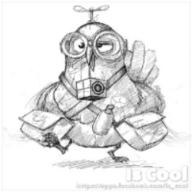i saw few sentences like
But that I saw it, I wouldn't have believed it.
若不是親眼目睹,我還不會相信呢。
"This move, combined with other recent price cuts, means motorists can potentially save around £5 on an average tank of fuel compared to a few weeks ago. But let's not kid ourselves, prices are still too high and motorists are still feeling the pain at the pumps
can you please explain when can I use "but" at the beginning of a sentence?
when can i use ”but” at the beginning of a sentence?
2008-07-31 12:24 pm
回答 (2)
2008-07-31 11:02 pm
✔ 最佳答案
根據 Dictionary.com o既解釋, 係可以用於句子的開端, 這手法在對話或寫作中非常普遍, 但係我認為, 學生在作文時就最好避免使用這方法, 改用However會較為保險。Dictionary.com
Usage note Both and and but, and to a lesser extent or and so, are common as transitional words at the beginnings of sentences in all types of speech and writing: General Jackson thought the attack would come after darkness. And he was right. Any objection to this practice probably stems from the overuse of such sentences by inexperienced writers. When one of these words begins a sentence or an independent clause within a sentence, it is not followed by a comma unless the comma is one of a pair setting off a parenthetical element that follows: John is popular, and he seems to be well adjusted. But,appearances to the contrary, he is often depressed.
以下係對話中可以用得著but作句子開端o既例子
Collins Cobuild English Language Dictationary
1) 當前後兩句句子有相反的意思:
We'll have a meeting. But not today ...
2) 當要補充先前所說的句子:
"I think Brooks has actually looked towards British humour as a guiding light in this respect." - "But another thing that he brings in is the comedy of being Jewish.
3) 當要轉話題:
Later, we'll be discussing the films of Alfred Hitchcock, but first, this week's new release... But Let's start at the beginning.
4) 當回應對方時想表示拒絕, 不願意或不相信:
That's very kind of you. But I'm terribly busy on Saturdays. ...
"Someone wants you on the telephone. " -- "But no one knows I'm here."
5) 當要表示 「若果不是某些原因/ 因素, 情況就會完全不同 」 (即虛擬假設句子)
But for you, I would be dead now.
But for the excessive humidity, it might have been a pleasant day.
參考: Collins Cobuild English Language Dictationary, dictionary.reference.com/browse/but
2008-07-31 1:26 pm
"but" as a conjunction.
the rule was set forth to prevent beginning English writers to put together run-on sentences, without breaking them up. So in Hong Kong school system, it is not recommended to use "but" at the start of the sentence. To safe guard your grades, don't start sentences with "but".
This rule is pretty much ignored once everyone got out of schools, nonetheless it is still being taught in schools. Yes, native speakers violate all the rules.
the rule was set forth to prevent beginning English writers to put together run-on sentences, without breaking them up. So in Hong Kong school system, it is not recommended to use "but" at the start of the sentence. To safe guard your grades, don't start sentences with "but".
This rule is pretty much ignored once everyone got out of schools, nonetheless it is still being taught in schools. Yes, native speakers violate all the rules.
收錄日期: 2021-04-21 01:34:25
原文連結 [永久失效]:
https://hk.answers.yahoo.com/question/index?qid=20080731000051KK00378


